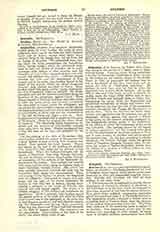

Atahualpa, JUAN SANTOS, an Indian from Cuzco who, being in the service of a Jesuit, went to Spain with his master. Upon his return, having committed a murder at Guamanga (Ayacucho in Peru), he fled to the forests on the eastern slopes of the Andes. There, in 1742, he persuaded the Indians that he was a descendant of the Inca head-chiefs and assumed the title of “Atahualpa Apu-Inca”. He claimed to have been sent by God to drive the Spaniards from western South America. As he was able to read and write Latin, as well as Spanish, he readily made the forest tribes believe him to be a powerful wizard and induced them to follow him, abandoning the towns which the Franciscans had established successfully at Ocopa and further east. To his influence was due the ruin of the prosperous missions throughout the Pampa del Sacramento in eastern Peru. Under his direction the forest tribes became very aggressive, and the missions were partly destroyed. Efforts against him proved a failure, owing partly to the natural obstacles presented by the impenetrable forests, partly to the inefficiency of the officers to whom the suppression of his revolt was entrusted. The uprising caused by his appeal to Indian superstition, was the severest blow dealt to the Christianization of the forest Indians in Peru, and it took decades of sacrifice and toil to recover the territory lost. To this day, according to reliable testimony, the Indians included under the generic name of Chunchos (properly Campas) claim to preserve the corpse of Santos Atahualpa, hidden from the whites, in a wooden, or willow, casket, as their most precious fetish.

